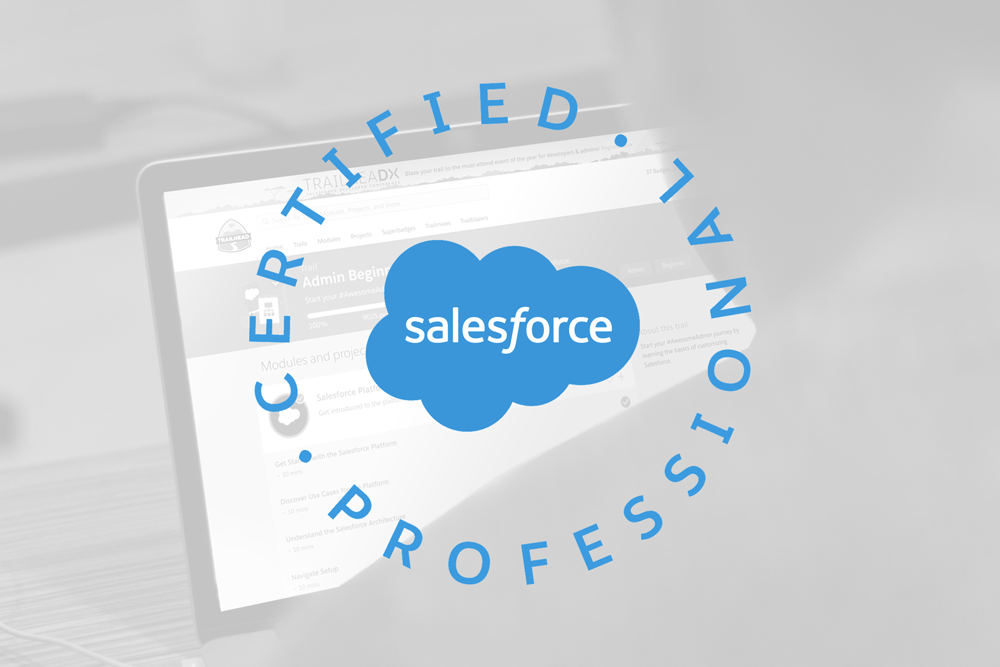 If you’re looking to build a prosperous career in the Salesforce ecosystem, becoming a Certified Salesforce Administrator is one of the most tried-and-true first steps. But, before you embark on this journey, it’s important to know what to expect, where to begin and how to pass the test the first time. This piece will serve as an overview for those curious about becoming a Salesforce Admin, as well as a guide to successfully get started.
If you’re looking to build a prosperous career in the Salesforce ecosystem, becoming a Certified Salesforce Administrator is one of the most tried-and-true first steps. But, before you embark on this journey, it’s important to know what to expect, where to begin and how to pass the test the first time. This piece will serve as an overview for those curious about becoming a Salesforce Admin, as well as a guide to successfully get started.
‘What Does it Take to be a Salesforce Admin?’
Every successful Salesforce Admin should possess the ability to think critically, adapt on the fly and maintain a technical process with many moving parts. Need someone who can add 90 new users, each with a slightly different permission set? Your Salesforce Admin has you covered. Or, how about someone who can build a process to add specific leads to a campaign, while also preventing duplicate lead creations? Ask your Admin.
‘What are their Core Responsibilities?’
Salesforce is a dynamic tool that requires a skilled and versatile Salesforce Admin to manage it – especially for enterprise companies. Consider that most organizations only have one Salesforce Admin, and you start to grasp the importance of the role. What’s more, as the gatekeeper for companies’ Salesforce org, Salesforce Admins are the lead for several core business processes, including running reports, implementing integrated technologies, managing and setting permissions and maybe even training new end-users.
‘How’s the Job Market for Salesforce Admins?’
Due to their core responsibilities, the demand for quality Salesforce Admins has never been greater. According to a recent report from Burning Glass, “Salesforce is now the seventh most in-demand software skill, up from No. 18 just four years ago. That puts the demand for Salesforce [skills] ahead of IT stalwarts such as Python, .Net and C++, and in line with commonly used applications, such as Adobe Photoshop.” So, needless to say, the decision to become an Admin offers little risk and a high ceiling.[1]
‘How Do I Prepare for the Test?’
One thing you’ll hear from many Salesforce Admins is that the Salesforce Certified Administrator exam is no walk in the park. Luckily, there are tons of online courses available that are designed specifically to help you pass the test. Most of these courses have a proven success rate. But, at the end of the day, what matters most is that you choose the course with the best material for your specific learning style and pace. Also, it’s important to review the Certification Exam scoring guide, which breaks down the Admin exam into sections and provides percentages for each topic on the exam. This gives prospective Admins the ability to know where they need to focus their time the most – a huge advantage, no doubt. Once you’ve studied hard and have a solid grasp of the material, it’s time to schedule your exam. Exam sites are all over, so be sure to select a site that’s close and comfortable to avoid any unnecessary test day stress.
‘What’s Test Day Like?’
There’s no better feeling than showing up to the Salesforce Certified Administrator exam with a full-grasp of the material, so study as much as possible! Remember to stay calm and use the age-old practice of going with your instinct on questions you might not know. The questions on the exam often have ambiguous wording and multiple correct answers. As such, it’s best to use all of the allotted time (1hr and 45 min) to check and double-check your answers. With any luck, a new Salesforce Admin will emerge from the testing center with a grin and a bright future ahead. After basking in the afterglow of a successful passage, you’ll then be faced with a new question…
‘How Do I Keep My Certification Active?’
Being a Salesforce Admin isn’t a one-and-done scenario. Since Salesforce is constantly getting new updates, releases and rules, staying up on your education is integral to a long and prosperous career. To keep your Admin certification up-to-date, you must take and pass three release exams per year. Luckily, the exams are open book, and typically only five questions long, so staying certified is relatively easy. For specific information on your account, visit the Credential Status Request tool to receive an email that provides you with your required release exams, and due dates.
‘Where Can I Take My Career Next?’
While some choose to be career Salesforce Admins, many use their role as an Admin as a launchpad to other Salesforce-specific roles, like a Salesforce Developer or a Salesforce Architect. And, when you consider that Salesforce Developers average yearly salary is over $100,000 per year and IT roles with Salesforce skills carry an 11-percent salary premium, you can see why. Whatever path you choose to take, the future is bright for those who commit to a career in the Salesforce ecosystem. For help deciding the next steps in your Salesforce education, head to the Credential Overview page.[1]



